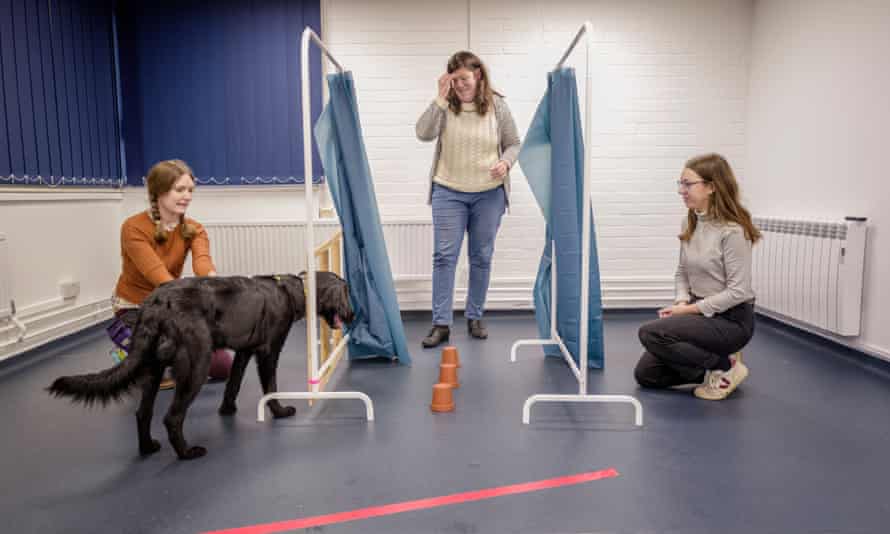It’s a cold winter’s day, and I’m standing in a room watching my dog stare fixedly at two flower pots. I’m about to get an answer to a burning question: is my puppy a clever girl?
Dogs have been our companions for millennia, domesticated sometime between 15,000 and 30,000 years ago. And the bond endures: according to the latest figures from the Pet Food Manufacturers Association 33% of households in the UK have a dog.
But as well as fulfilling roles from Covid detection to lovable family rogue, scientists investigating how dogs think, express themselves and communicate with humans say dogs can also teach us about ourselves.
And so I am here at the dog cognition centre at the University of Portsmouth with Calisto, the flat-coated retriever, and a pocket full of frankfurter sausage to find out how.

We begin with a task superficially reminiscent of the cup and ballgame favoured by small-time conmen. Amy West, a PhD student at the centre, places…









































